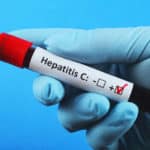A Chemically Sound Reason to Exercise with HCV
We’ve all heard it before – the key to longevity is eating right and exercising. This sentiment has been repeated so many times that its meaning doesn’t seem to carry much weight anymore. Since lifestyle choices can be extremely influential on the progression of chronic Hepatitis C infection, people with this virus are especially likely to receive advice on nutrition and exercise. Instead of allowing food and activity advice to get lost into a repetitive fog, a new perspective on one of these elements may inspire a renewed commitment to liver health.
Aside from receiving orders on how to live one’s life, more detailed information about why certain lifestyle adjustments help fight Hepatitis C can motivate people to create new habits. This is particularly poignant when realizing how regular exercise initiates a chemical change in the body that is paramount to staying healthy with Hepatitis C.
Antioxidants and Hepatitis C
In learning how to navigate wellness with a progressive liver virus like Hepatitis C, discovering the role of antioxidants to combat cellular oxidation is inevitable.
Cellular oxidation occurs when oxygen or disease excessively breaks down a substance, producing free radicals (negatively charged electrons no longer attached to their atoms). Free radicals create chemical instability that invites another atom or molecule to easily bond with it. The result of this invitation is a cellular-altering chemical reaction that is capable of damaging cell walls, cellular structures and the genetic material inside cells. This process (cellular oxidation) is readily seen in Hepatitis C’s deterioration of liver tissue.
The antithesis of oxidation, antioxidants reduce, neutralize and prevent the damage inflicted by free radicals. They primarily accomplish this feat by safely interacting with free radicals to end the oxidative process before damage is inflicted.
Glutathione
Sometimes referred to as the king of antioxidants, glutathione is a vital, potent substance for maintaining liver health. It differs from other antioxidants in that it is actually resides inside cells, so it is in the best position to neutralize free radicals. Clinical studies have demonstrated that many with Hepatitis C have alarmingly low levels of glutathione. This could be because:
- The continual damage by Hepatitis C consumes glutathione, thus increasing demand for it.
- Hepatitis C leads to a deficiency of raw materials needed to synthesize glutathione.
- The Hepatitis C virus could interfere with glutathione formation.
Any combination of the above three reasons could be the cause of low glutathione in the presence of chronic Hepatitis C. Regardless of how it occurs, insufficient glutathione levels reduce the liver’s ability to protect itself, enhancing the probability of liver damage.
Why Exercise Boosts Glutathione
Armed with the understanding that people with Hepatitis C have a lot to gain from greater amounts of glutathione, our attention turns to making that happen. Because glutathione is produced in the body, it is not easily absorbed when taken orally. Instead, supplementing with glutathione precursors like N-Acetyl L-Cysteine (NAC) can be used by the body to increase production of glutathione.
Another way to boost glutathione levels is to get plenty of exercise. This is because exercise exponentially increases the amount of adenosine tri-phosphate (ATP) in the body’s cells. Known by scholars as the chemical basis for energy and chemical reactions in the body, ATP is needed to produce glutathione.
Aerobic exercise involves repeated, rhythmic movement of the body’s large muscle groups and maximizes the amount of oxygen in the blood. Muscle activity longer than 90 seconds depends on aerobic cellular respiration. As it turns out, aerobic exercise is the most efficient way (via aerobic cellular respiration) for the body to manufacture ATP. Thus, aerobic activity indirectly boosts the body’s glutathione levels, improving a liver’s resilience against free radicals and Hepatitis C damage.
Understanding the science behind a physician’s seemingly standard recommendation can change a patient’s perspective. With renewed appreciation of the chemistry behind rigorous physical activity, hopefully those with Hepatitis C will view exercise more as a prescription than a mere suggestion.
References:
http://proteinpowder.mercola.com/Miracle-Whey-Protein.html, “How to Burn Toxins Out of Your Body as You Eat Breakfast”, Dr. Joseph Mercola, Retrieved May 2, 2010, proteinpowder.mercola.com, 2010.
http://www.hepatitis-central.com/mt/archives/2007/02/why_antioxidant.html, Why Antioxidants are Important for Hepatitis C Patients, Nicole Cutler, L.Ac., Retrieved May 2, 2010, Natural Wellness, 2010.
http://www.hepatitis-central.com/mt/archives/2007/07/hcv_and_the_bod.html, HCV and the Body’s Most Important Antioxidant, Nicole Cutler, L.Ac., Retrieved May 2, 2010, Natural Wellness, 2010.
http://www.lef.org/protocols/immune_connective_joint/immune_system_01.htm, Immune System Strengthening, Retrieved May 2, 2010, Life Extension Foundation, 2010.
http://www.ncbi.nlm.nih.gov/pubmed/8946988, Hepatic glutathione deficiency in chronic hepatitis C: quantitative evaluation in patients who are HIV positive and HIV negative and correlations with plasmatic and lymphocytic concentrations and with the activity of the liver disease, Barbaro G, et al, Retrieved May 2, 2010, The American Journal of Gastroenterology, December 1996.







